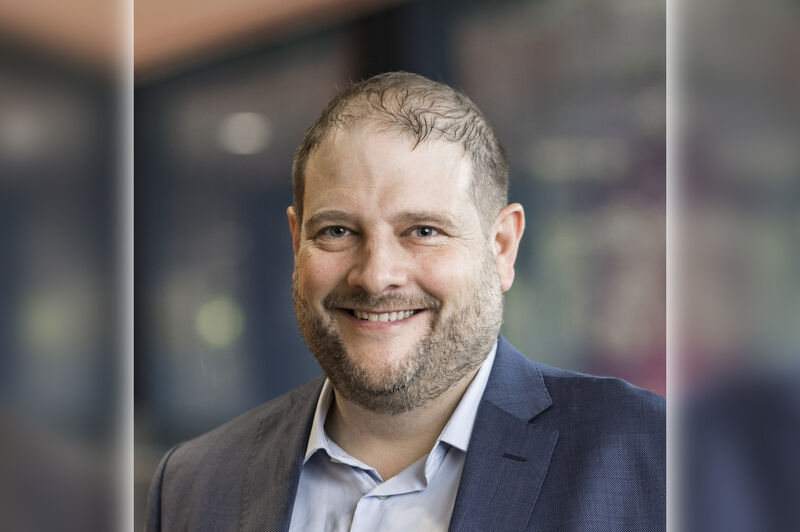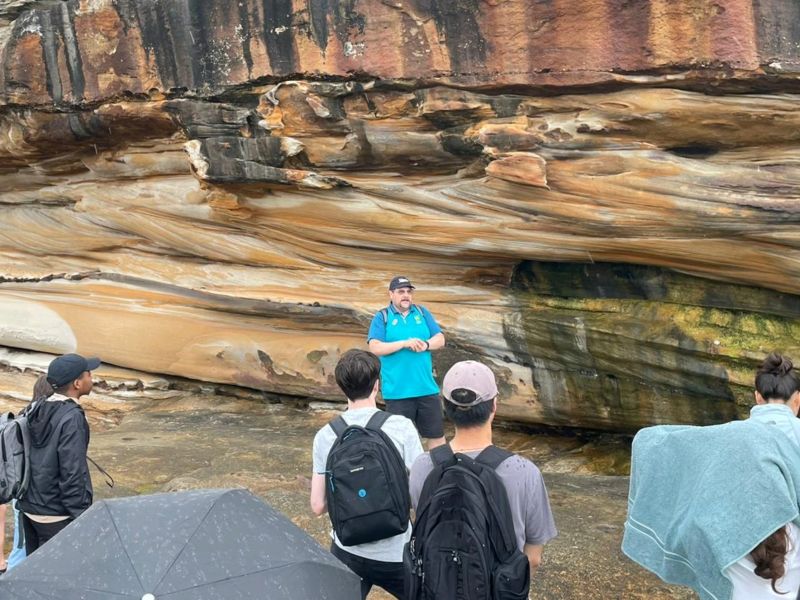Congratulations to Stuart Clark on his promotion to UNSW Professor

Prior to joining UNSW in 2017, he was the Director of Research at Kalkulo AS in Norway (2014-2017) a technology company which provided computation physics, geoscience, geometrical modeling and digitalization solutions for the oil and gas sector, following on from his role as the Head of Department of Computational Geoscience for the Norwegian Simula Research Laboratory (2011-2014).
In both these roles he worked on and managed projects delivering cutting edge software and research products to impact industry workflows and regional geological understanding.
He began at UNSW in 2017 as Senior Lecturer and then Associate Professor in Minerals and Energy Resources Engineering, before joining the School of Civil & Environmental Engineering as an Associate Professor at the beginning of 2024. He was the Faculty of Engineering’s Academic Disability Advisor for five years before becoming the Faculty’s Director of Governance, a position he currently holds.
Stuart’s research specialties include: Machine Learning applied to Geophysical data; Basin dynamics; plate tectonics and reconstructions; Subduction Zones; Numerical Modelling of Fluid Flows; Visualisation of geophysical data; and Uncertainty analysis
Head of School Prof Nasser Khalili congratulated Stuart on his well-deserved recognition and promotion for exceptional contributions to research, education and leadership and his continued commitment to engagement in his research field.
The promotion, a career pinnacle, prompted Stuart to pen his own thanks and reflections upon his journey:
‘I would like to take a moment to reflect on my career to this point and thank all of those who have supported and helped me develop as an academic over the years. Behind the scenes, my family have been amazing at all levels, allowing me to go through an extended stage of undergraduate and postgraduate study and research (11 years in total) as well as spending nearly 11 years overseas post-study and now 7 years of hard-work at UNSW.
To my career, two arts degrees and a higher education graduate certificate were as important as two science degrees in helping me navigate the complex and competitive world out there as well as understanding my own inner process developing alongside my career.
First and foremost, my completed and current research students have been crucial partners on the road to this point in my career, Luo Peigen, Lize Hermogenes de Mendonca, Lisa Tannock, Mackenzie Baker, George Marfo, Suleiman Altaheini, Hamad Alarji, Patrick Makuluni, Jiachao Ge, Ruaa Alohali, Mohammed Almedallah, Aina Juell Bugge, Julia Wiebe, Alessio Lavecchia, Marcus Michael Noack, Jonathan Feinberg, Evmorfia (Eva) Andritsopoulou, Rainer Nerlich, Maria Chiara Bianchi Harikrishnan Nalinakumar, Elena Babina, Aseem bin Suleiman, Vladislav Alekseev - you have all been amazing and taught me so many things.
I have also had many mentors over the years, and it is hard to mention them all but stand outs among them are Prof. Dietmar Müller, Dave Stegman, Are Magnus Bruaset, Hans Petter Langtangen, Steven Foster, MBA, MHA, FACHE, Marie E. Rognes, Hans-Peter Bunge, Alison Lennon, Klaus Regenauer-Lieb, Nasser Khalili, Ismet Canbulat, Maria Seton, Louis Moresi, Dorrit Jacob, Chris Elders, Craig O'Neill, Alison Beavis, Drs. Allison "Allie" Kennedy Thurmond, Ph.D., Ulrike Schacht, Jakob Skogseid, Alex Bannigan and Steven Parker and so many colleagues at UNSW, Kalkulo and Simula Research Laboratory.
My workplaces have also supported my development by recognising outcomes over uniformity and supporting a flexible and (somewhat) neuro-atypical work process alongside my personal commitments, particularly as a father.
Finally, to geophysics and geology - you have been fascinating subjects of investigation and I keep learning the depth to which I don't know and don't understand dynamic Earth processes even as a I develop into a professor in the field.
I will continue to strive to understand the mysteries of the Earth that sustains us and advocate for Earth science and engineering.’
Congratulations Professor Stuart Clark!




